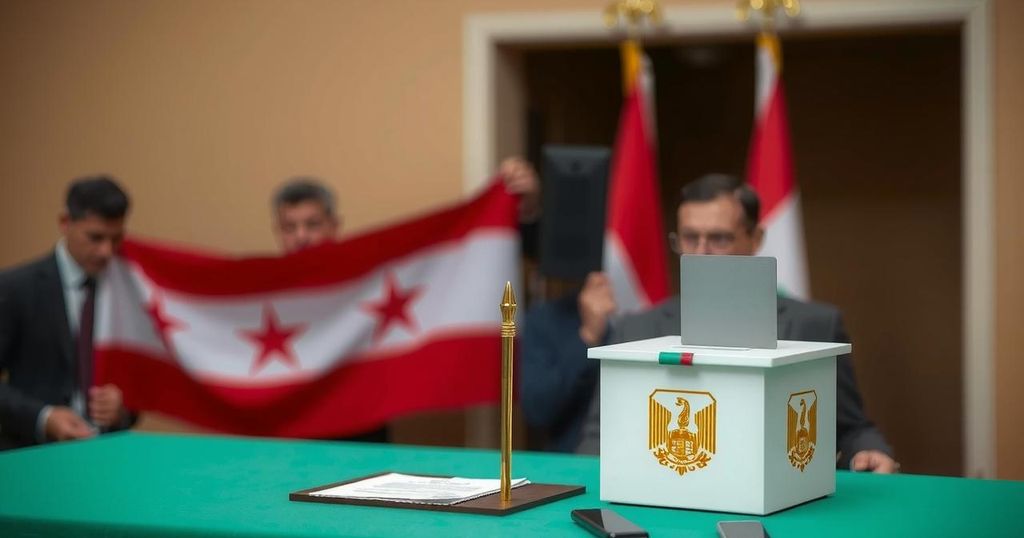Syria’s De Facto Leader Hints at Extended Timeline for Elections and Rebuilding Plans
Syria’s de facto leader Ahmad al-Sharaa announced that elections may not occur for up to four years as preparations are required, including drafting a new constitution. His remarks signify a desire to reestablish the country post-Assad and engage the international community while signaling the eventual dissolution of HTS. Additionally, al-Sharaa emphasized the importance of rebuilding Syria and fostering relations with countries like Saudi Arabia amid ongoing diplomatic talks.
Syria’s de facto leader, Ahmad al-Sharaa, indicated that elections in the country might be postponed for up to four years as preparations are needed before conducting polls. Following the overthrow of Bashar al-Assad by his group, Hayat Tahrir Al-Sham, al-Sharaa acknowledged the need for a new constitution, which may require three years to draft. In an interview, he emphasized the importance of rebuilding the country post-Assad’s rule, which lasted over five decades, and the necessity of ensuring that past experiences do not repeat. Al-Sharaa also articulated HTS’s plans to dissolve as part of the transition and mentioned his intention to mend ties with the international community, notably expressing that Russia’s continued presence in Syria must remain respectful of their bilateral relationships. Furthermore, al-Sharaa welcomed recent diplomatic missions from various nations, including a Ukrainian delegation, as he seeks to distance himself from his jihadist past and attain formal recognition on the global stage.
In discussions about alliances, al-Sharaa noted the role Saudi Arabia could play for Syria’s future, signifying a shift in the country’s foreign policy approach as it seeks to move past the former regime’s isolation policies. This leadership transition marks a critical juncture for Syria, which has experienced significant turmoil and destruction, thus necessitating the formation of a new societal framework that can guide the nation towards stability and prosperity.
The context of Syria’s current political landscape involves the recent overthrow of Bashar al-Assad by the Islamist group Hayat Tahrir Al-Sham (HTS), which has challenged the long-standing regime that ruled for over 50 years. In the wake of this upheaval, the interim government led by Ahmad al-Sharaa has started to navigate the complexities of establishing a new political order, committing to drafting a new constitution and planning elections. However, the timeline for these reforms has been extended due to necessary preparatory work, prompting discussions on the role of foreign influence and relationships within this transitional phase.
In summary, Syria faces a profound transformation following the fall of a long-standing regime. Ahmad al-Sharaa’s leadership is focused on preparing the nation for significant changes, including potential elections and a new constitution, while ensuring that the past is not repeated. By seeking to repair relationships with global players and emphasizing the need for a collaborative approach to governance, the interim government aims to foster stability and secure international legitimacy.
Original Source: www.cnn.com




Post Comment